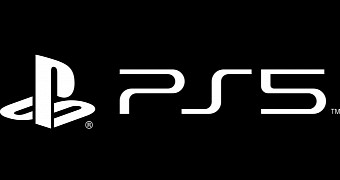In what could be described as an uninteresting press conference for end consumers, Sony revealed the technology behind the hardware under the PlayStation 5's chassis. The 1-hour speech given by Sony's Mark Cerny shed light on the PlayStation 5's improvements over the current generation of consoles but lacked any information about what we really care: games.
In Sony's defense, the announcement was meant to go live at GDC (Game Developer Conference) this week, but since the event was canceled, Sony decided to share all the PlayStation 5 information with the world.
What we're trying to say is that Mark Cerny's presentation was perfectly suitable for a room full of developers and journalists, but extremely boring for gamers who want details about hardware, price, availability, and games.
Well, at least one of those requirements has been met since the whole presentation was about PlayStation 5's hardware and how Sony managed to come up with various software solutions to boost the console's power and make it easier for developers to create games.
Without further ado, here are the full hardware specs inside the PlayStation 5: x86-64-AMD Ryzen Zen 2 processor (8 cores / 16 threads) clocked at up to 3.5GHz, AMD Radeon RDNA 2-based graphics engine featuring ray-tracing acceleration and 10.3 teraflops, 16GB GDDR6, 825GB SSD featuring 5.5GB/s read bandwidth, Ultra HD Blu-ray (up to 100GB/disc), and Tempest 3D AudioTech.
Sony also revealed that PlayStation 5 will feature support for 4K 120Hz TVs, 8K TVs, and VRR (specified by HDMI version 2.1). Moreover, the top 100 PlayStation 4 titles as ranked by playtime will be backward compatible with PlayStation 5, but additional titles might be added after launch.
Putting PlayStation 5 and Xbox Series X side by side, it's clear that the latter is more powerful, at least on paper. However, the main differentiator will be the so-called exclusive that each console will score. Exclusive games was the main reason PlayStation 4 won the battle of current generation consoles, but Microsoft bought a lot of studios lately and we expect several triple-A games to be announced later this year.
Still, Microsoft's gaming strategy doesn't rely on exclusives, which means that all games developed by its studios will be available no only on the new Xbox Series X, but on PC as well. On the other hand, Sony's PS4 exclusives rarely come to PC, which forces gamers to buy the company's console if they want to play these titles.
Then, there's the matter of price, although based on the previous history, both companies priced their consoles similarly. Since the most important thing that would make a gamer want to buy a new console, the games, hasn't been revealed yet, we'll just have to wait until either of the two giants make a move in that direction.

 14 DAY TRIAL //
14 DAY TRIAL // 